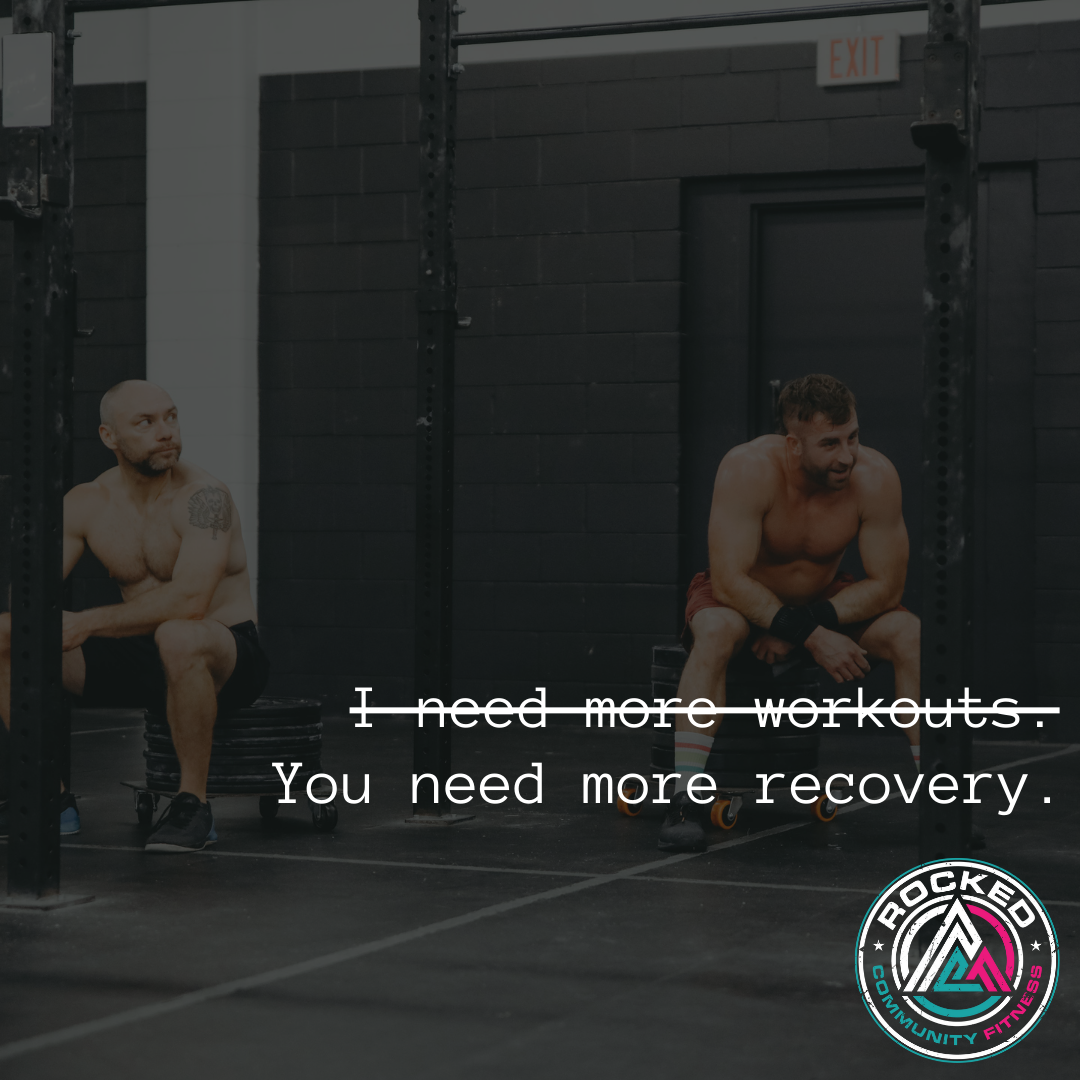Inconsistent training can negatively impact results but so can over-training! Intensity drives results, not volume. When we start a new exercise program, it can be super exciting and easy to think that more training will get you more results or quicker progress. This is truly not the case. We shouldn’t feel tired/beat up/sore/injured all the time. In fact, that could be a clear sign that you are over-training. Recovery is crucial for strength gains because it allows your body to adapt and make improvements in response to the stress and strain placed on your muscles during strength training. Here are several reasons why recovery is essential for maximizing strength gains:
- Muscle Repair and Growth: During strength training, especially resistance exercises, you create microscopic damage to your muscle fibers. This damage is necessary for muscle growth and strength gains, but the actual improvements occur during the recovery phase. Adequate rest and recovery provide the time and resources needed for your body to repair and rebuild these muscle fibers, making them stronger and more resilient.
- Central Nervous System (CNS) Recovery: Strength training also involves the central nervous system, which coordinates muscle contractions. Over time, intense training can stress the CNS. Recovery allows your CNS to recuperate, ensuring that it can continue to efficiently recruit muscle fibers and generate force during future workouts.
- Hormone Balance: Rest and recovery play a role in hormone regulation, including the release of growth hormone and testosterone, which are critical for muscle growth and strength development. Insufficient recovery can disrupt hormonal balance and hinder strength gains.
- Energy Stores: Strength training depletes glycogen stores in your muscles. Adequate recovery time allows your body to replenish these energy stores, ensuring you have the fuel necessary for intense workouts.
- Mental Rest: Recovery isn’t just physical; it’s also mental. Strength training can be mentally taxing, and adequate rest helps refresh your mental focus and motivation. A well-rested mind is more likely to engage effectively in workouts.
- Long-Term Progress: Consistent recovery practices contribute to long-term progress. Without proper recovery, you may experience plateaus or even regress in your strength gains. Taking time to recover allows for gradual, sustainable improvements.
At Rocked, we believe that members should start with 2-3 days a week consistently and build from there. However, we also believe that most people only need 4-5 days of intense training per week, maximum. To optimize strength gains, it’s essential to balance your training with rest and recovery. This includes incorporating rest days, adjusting your training volume and intensity, getting adequate sleep, staying hydrated, and consuming a balanced diet. By doing so, you’ll promote muscle growth, enhance your performance, and reduce the risk of injury, ultimately leading to more significant and sustainable strength gains over time.
Rockers, if you are every wondering about your training volume or intensity, book a session with Jenn/Zack to discuss! We’re always here to help.


